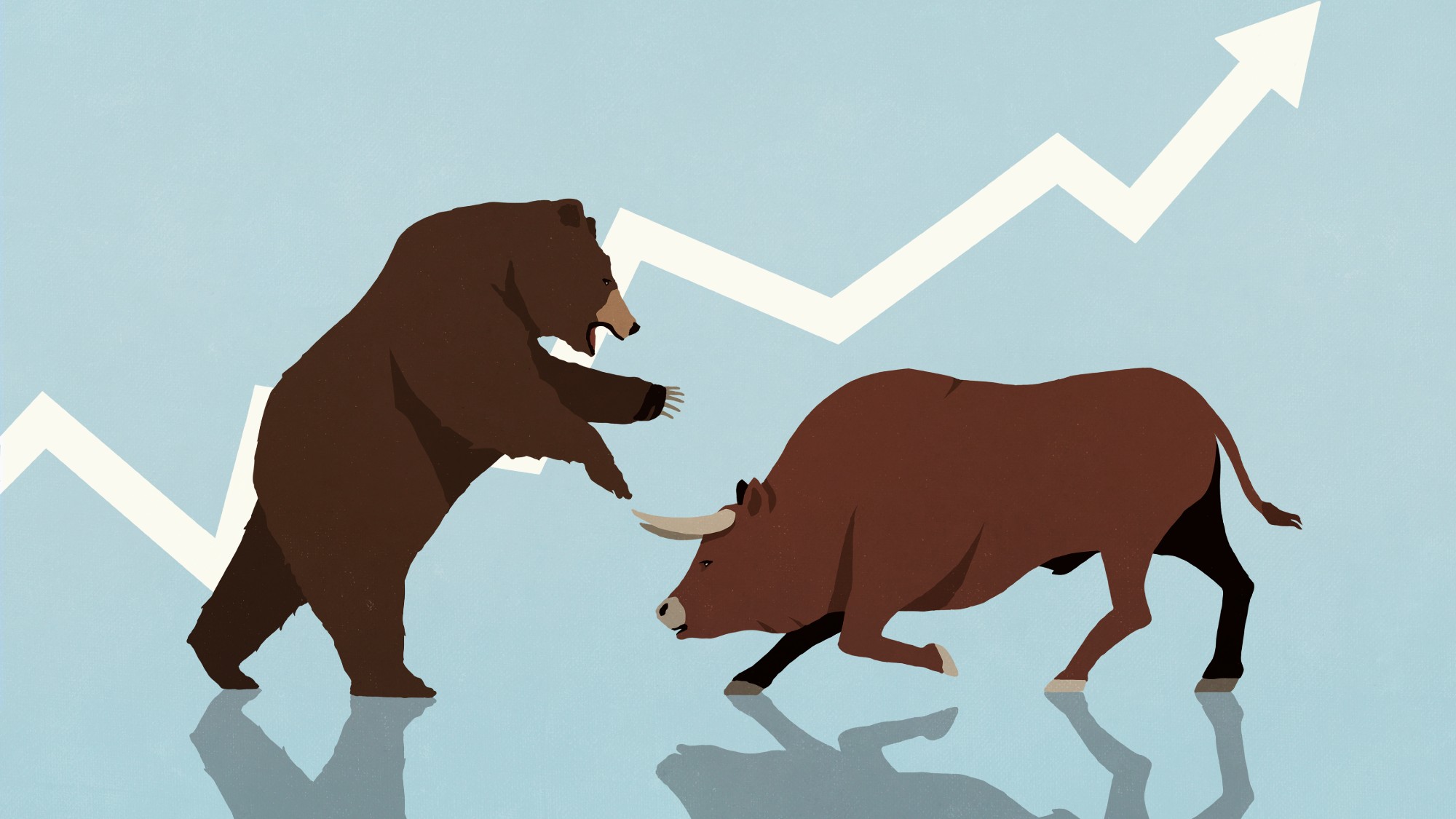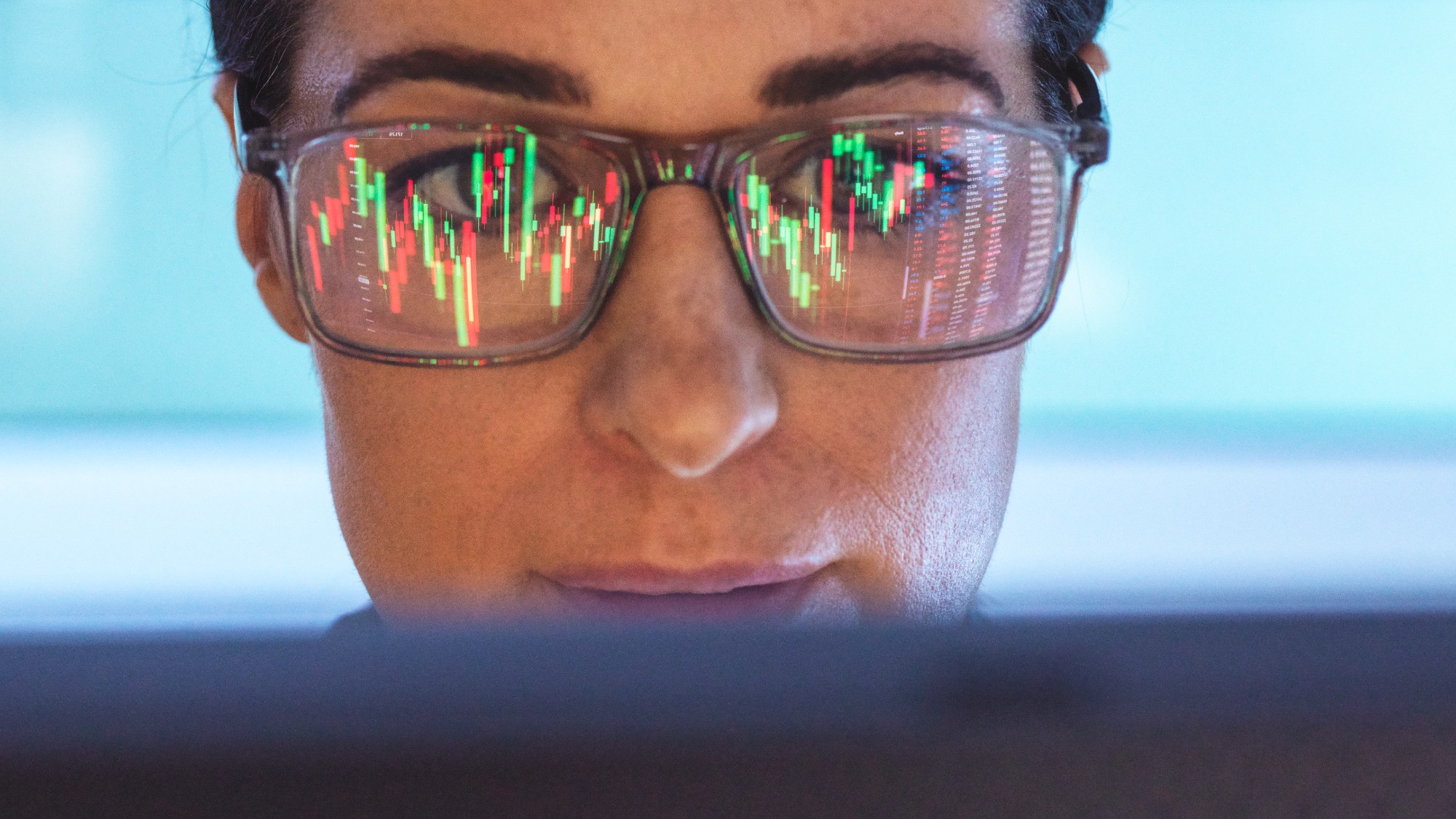What climate change means for investing
If you're currently invested in coal, you might want to reconsider


A free daily email with the biggest news stories of the day – and the best features from TheWeek.com
You are now subscribed
Your newsletter sign-up was successful
Climate change is an unfortunate reality that is going to reshape many parts of our world — and investing is likely no exception. According to a recent study by the International Finance Corporation (IFC), "effects on returns from climate change are inevitable," with — perhaps unsurprisingly — "the energy sector most significantly impacted."
As a citizen of a warming world as well as an investor planning for your own financial future, the question arises of how you can invest responsibly in light of and as a result of climate change, and whether any portfolio adjustments are necessary going forward. Here's a look at how climate change is shifting things in the world of investment and what's predicted for the future.
How is climate change impacting the investment landscape?
According to a report by McKinsey, "climate-related investment increased significantly in 2022, defying the considerable geopolitical and macroeconomic headwinds that roiled most global capital markets." More specifically, it reported that "climate-related private-market investment far outpaced the broader market in 2022 as measured by deal activity, the amount of capital deployed, and capital flows into dedicated funds." Between just 2019 and 2022, for instance, over 330 sustainability, environmental, social, and governance (ESG), and impact funds were launched by private-market equity investors, says McKinsey.
The Week
Escape your echo chamber. Get the facts behind the news, plus analysis from multiple perspectives.

Sign up for The Week's Free Newsletters
From our morning news briefing to a weekly Good News Newsletter, get the best of The Week delivered directly to your inbox.
From our morning news briefing to a weekly Good News Newsletter, get the best of The Week delivered directly to your inbox.
When you apply via our links we may earn an affiliate commission.
And it predicted that momentum would continue to pick up speed going forward, in light of the continued introduction of climate technologies and nations' efforts to curb emissions and expedite plans for more renewables. Still, McKinsey contended that "much more remains to be done to scale up climate investing."
What future trends are predicted to emerge as a result of climate change?
As the IFC pointed out, climate change's impact will be better for some industries than for others. It reported that the coal industry likely will be "the biggest loser" of the shifts precipitated by climate change, estimating that average annual returns in the industry "could fall by 26% to 138% over the next ten years."
According to Investopedia, coal won't be the only industry seeing negative impacts from climate change either. It underscored that "global warming is likely to cause droughts, floods, temperature changes, or changes to growing seasons that will affect the profitability of most forms of agriculture." Many industries will also likely see higher levels of risk that will drive up overall costs, per Investopedia.
A free daily email with the biggest news stories of the day – and the best features from TheWeek.com
The "biggest winner," on the other hand, is likely to be the renewable sector, says the IFC. As Investopedia pointed out, "if climate change can be averted, the technology to do so will require great investments of resources, and offer potentially great profits." In fact, IFC projected that "average annual returns in the renewables sector could increase by between 4% and 97% over the next ten years."
What can investors do to weather the reality of climate change?
While the idea of capitalizing on a climate catastrophe understandably might feel icky, there are moves investors can make that can benefit both their portfolios and the shift toward a more sustainable future. This practice is referred to as climate investing, and it falls under the umbrella of environmental, social, and governance (ESG) investing, which Investopedia describes as "a field that seeks to accomplish positive social benefits as well as profits," such as by "investing for the good of the planet."
For instance, there are a variety of assets investors can add to their portfolio to "create a thematic portfolio around climate change," said Investopedia, such as solar and green tech investments. Further, Investopedia advised that investors keep an eye on "the impact of environmental changes on more traditional assets as well." As an example, Investopedia highlighted how "climate change has already caused significant disruption to real estate and insurance markets due to wildfires and flooding."
And because we don't know what the future will hold as climate change's effects continue to unfurl, Investopedia recommended creating an emergency fund and considering gathering emergency supplies of other sorts, in the instance of more severe storms or utility failures.
What are some investment opportunities oriented toward sustainability?
First and foremost, remember there are no guarantees when it comes to investing, or what will prove successful in the fight against climate change. That said, Investopedia reported that "many experts believe that alternative energy, alternative transportation, and other green initiatives may become more widespread as the effects of climate change are felt."
More specifically, it points to solar technology, which it says "remains an up-and-coming area in the alternative energy sector." You might invest in "stocks in solar panel manufacturers" or turn to managed funds, such as the Market Vectors Solar Energy ETF (KWT) and Guggenheim Solar Fund (TAN), per Investopedia.
There are also a variety of global opportunities (Investopedia suggests checking out the Global Trends in Renewable Energy Investment 2020 report, which describes investments by technology type and country in the last 10 years).
Another option highlighted by Investopedia are companies with green energy initiatives. One way to identify those is the STOXX Global Climate Change Leaders Index. CNBC pointed to Carrier Global Corporation, Johnson Controls International, and Hannon Armstrong Sustainable Infrastructure Capital as examples of companies that are making positive moves toward our climate future.
Of course, it's important to keep in mind that what's right for your portfolio will depend on your specific financial situation and goals, as well as your personal priorities when it comes to investing.
Becca Stanek has worked as an editor and writer in the personal finance space since 2017. She has previously served as the managing editor for investing and savings content at LendingTree, an editor at SmartAsset and a staff writer for The Week.
Becca Stanek has worked as an editor and writer in the personal finance space since 2017. She previously served as a deputy editor and later a managing editor overseeing investing and savings content at LendingTree and as an editor at the financial startup SmartAsset, where she focused on retirement- and financial-adviser-related content. Before that, Becca was a staff writer at The Week, primarily contributing to Speed Reads.
-
 What to know before filing your own taxes for the first time
What to know before filing your own taxes for the first timethe explainer Tackle this financial milestone with confidence
-
 The biggest box office flops of the 21st century
The biggest box office flops of the 21st centuryin depth Unnecessary remakes and turgid, expensive CGI-fests highlight this list of these most notorious box-office losers
-
 What are the best investments for beginners?
What are the best investments for beginners?The Explainer Stocks and ETFs and bonds, oh my
-
 How your household budget could look in 2026
How your household budget could look in 2026The Explainer The government is trying to balance the nation’s books but energy bills and the cost of food could impact your finances
-
 What’s the difference between a bull market and bear market?
What’s the difference between a bull market and bear market?The Explainer How to tell if the market is soaring or slumping.
-
 What is a bubble? Understanding the financial term.
What is a bubble? Understanding the financial term.the explainer An AI bubble burst could be looming
-
 What is day trading and how risky is it?
What is day trading and how risky is it?the explainer It may be exciting, but the odds are long and the risks high
-
 The FIRE movement catches on as people want to retire early
The FIRE movement catches on as people want to retire earlyIn the spotlight Many are taking steps to leave the workforce sooner than usual
-
 Retail investors drive a flurry of IPOs
Retail investors drive a flurry of IPOsFeature After years of slowness, companies like Klarna and Gemini are reviving the IPO market
-
 Who wants to be a millionaire? The dark side of lottery wins
Who wants to be a millionaire? The dark side of lottery winsIn The Spotlight Is hitting the jackpot a dream come true or actually a nightmare?
-
 What to know before 'buying the dip'
What to know before 'buying the dip'the explainer Purchasing a stock once it has fallen in value can pay off — or cost you big
